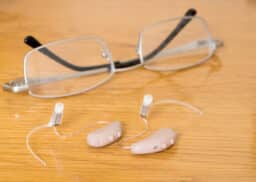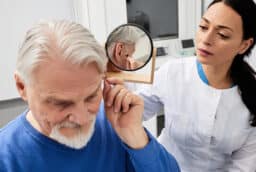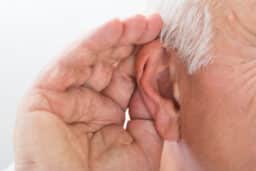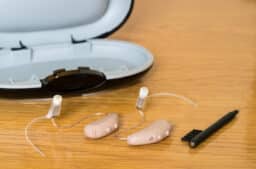All About Babies and Hearing Aids

For many parents, learning that their baby might require hearing aids can evoke a range of emotions. Yet, becoming familiar with the role these devices play in a child’s growth and strategies to ensure they are used effectively can be comforting. Follow these guidelines to help your infant benefit fully from their hearing aids. The…
Avoiding Common Pitfalls: Tips for New Hearing Aid Users

In the United States alone, approximately 28.8 million adults could significantly improve their quality of life with hearing aids. Embracing new hearing aids marks an exciting chapter, but understanding the best practices associated with their use is paramount to fully reap their benefits. Let’s explore the benefits of hearing aids, some common missteps made by…
Why You Should Reconsider Hearing Aids

Hearing loss is a common condition affecting approximately 15% of U.S. adults. Those with untreated hearing loss frequently experience difficulty communicating with those around them, mental fatigue and more. Unfortunately, even with the adverse effects, people with hearing loss wait an average of seven years before seeking help. Hearing aids are one excellent way to…
How to Know If Your Hearing Aid Is Functioning Improperly and What To Do

Nearly 28.8 million adults in the U.S. could benefit from the use of hearing aids. Yet, people often wait several years to accept that they may need them for various reasons, including being intimidated by their function. Signs of Poor Function If you were resistant to the thought of hearing aids and are now encountering…
Causes of Rapid Hearing Loss

Sudden Sensorineural Hearing Loss, also known as SSHL, is an abrupt loss of hearing that frequently affects only one ear. This condition can manifest as anything from a slight loss to complete loss and may happen all at once or over several days. Should you experience any signs of SSHL, seeing a hearing specialist urgently…
What To Expect During a Newborn Hearing Screening

Newborn children use their hearing to learn speech and understand the world around them. Approximately 1.7 per 1000 infants screened in the United States are born with hearing loss in one or both ears. Because children rely so heavily on their hearing for learning, prompt identification of infant hearing loss is crucial for early intervention…
What Infections Are Linked To Hearing Loss?

When you think of common causes of hearing loss, you’re likely picturing aging and prolonged exposure to loud noises from heavy machinery or concerts at the Jessye Norman Amphitheatre. One significant cause of hearing loss you may not have considered is infection. Infection-induced hearing loss can occur in one or both ears and is generally…
How Cleaning Hearing Aids Prevents Infection

Your hearing aids spend most of their time in the cool, moist environment your ear creates. It’s a perfect environment for bacteria and fungus that could cause ear irritation and infection. That’s why it’s important to maintain strong cleaning routines for your hearing aids to prevent infection. Types of Infections About seven percent of adults…
Tips For Dealing With Restaurant Noise With Hearing Aids

Entering the holiday season often means frequent celebrations and eating out, regardless of the time of year. Nearly 25% of people aged 65 to 74 and 50% aged 75 or older experience disabling hearing loss, and nearly 28.8 million Americans could benefit from the use of hearing aids. So, if you’ve ever wondered how to…
What Is Microtia and Atresia

Microtia is a birth defect in which the external ear is not fully developed. It often occurs with atresia, a condition in which the auditory ear canal is not fully developed, closed or missing, resulting in hearing loss. The CDC estimates microtia affects one in every 3800 babies born in the U.S. There are four types of…
